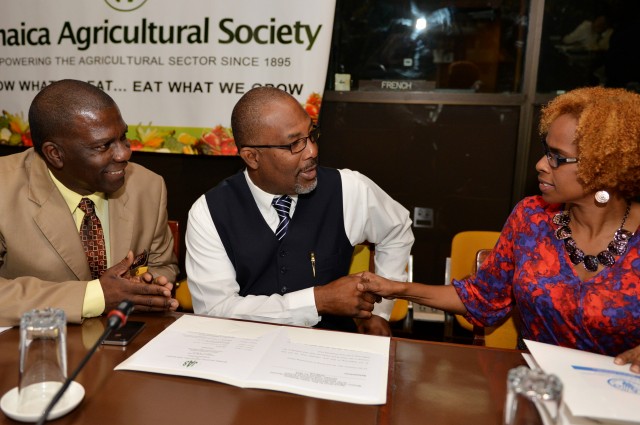Jamaica to Achieve Self-Sufficiency in Irish Potato Production This Year

The country is on target to be self-sufficient in the production of table Irish potato by the end of 2015.
“For 2015, we are aiming to produce 18 million kilograms of table Irish potato, which would mean that Jamaica would have attained 100 per cent self-sufficiency in production of table Irish potato,” said Minister of State for Agriculture, Labour and Social Security, Hon. Luther Buchanan.
He was speaking at the Jamaica Agricultural Society’s (JAS) national agricultural food security and economic summit held today (Jan. 22), at the Jamaica Conference Centre, downtown Kingston.
Mr. Buchanan informed that in 2013, local producers supplied 87 per cent of the demand for table Irish potato, up from 32 per cent in 2008.
“Although we do not have the final figures for 2014, the indications are that in spite of the drought, we did very well,” Mr. Buchanan said.
He contended that the increased production and improved productivity in the Irish potato industry, is a result of the implementation of an integrated development programme, involving the Ministry, Rural Agricultural Development Authority (RADA) and other stakeholders.
He noted that organisations such as the Christiana Potato Growers Co-Operative and the St. Elizabeth Co-Operative Credit Union have also been playing an integral role.
“The integrated development programme has not only improved the availability of investment funding, but also crop care and training, and is an excellent example of what can be achieved through public/private partnership,” Mr. Buchanan said.
Meanwhile, Mr. Buchanan informed that the Ministry is now looking to significantly increase the production of onion as part of efforts to reduce the country’s import bill.
He said data indicates that the country produces 12 tonnes of onion per hectare, which is way below the global average of 17 tonnes per hectare.
“Currently, we import, 9, 000 tonnes of onion annually, costing US$3.6 million. We are now working to reverse this trend. As part of our onion development plan, we are aiming to reduce importation by 50 per cent by 2017,” Mr. Buchanan said.
There are some 300 farmers involved in onion production, with 72 hectares of land established, including 40 hectares in the agro parks.
As part of the development programme, the Ministry intends to have 450 farmers involved in onion production in 2015/2016 and expects to have that number increased to 600 farmers by 2016/2017.
The summit was staged by the JAS as part of its thrust to increase the production of the country’s domestic and traditional crops and to reduce the importation of agricultural produce.




